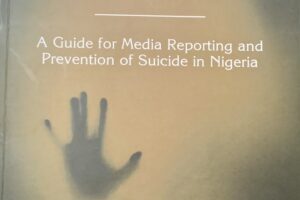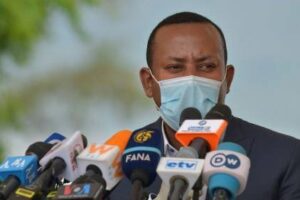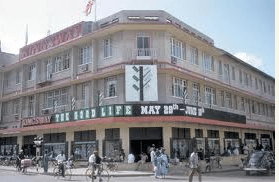admin 18th Dec 2020 No Comment
SUICIDE AND THE NIGERIAN PRESS – A review of the book ‘The Morning After’ By Femi Olugbile One of the significant cultural and educational events of the...
admin 11th Dec 2020 No Comment
NOW THAT THE VACCINE IS HERE… By Femi Olugbile In the normal course of things, the arrival of a vaccine that is effective against COVID19 should be cause...
admin 4th Dec 2020 No Comment
Et tu, Abiy? By Femi Olugbile The images come back vividly to mind. Government College Ibadan under DJ Bullock had a tradition of putting up a school play...
admin 27th Nov 2020 No Comment
– A review of ‘A PROMISED LAND’ by Barack Obama by Femi Olugbile At last, the long-awaited story of the Obama era ‘from the horse’s mouth’ has been...
admin 20th Nov 2020 No Comment
DATELINE LAGOS 1920-2020; ADVENTURES OF ELEKO’S STAFF OF OFFICE By Femi Olugbile On the twentieth of November 1920, Mr. Henry Carr, Resident of the Colony, on behalf of...
admin 13th Nov 2020 No Comment
On the vexed issue of Rape By Femi Olugbile The field of ‘Gender-based abuse with a focus on sexuality’ is a fraught one that reflects some fundamental aspects...
admin 6th Nov 2020 No Comment
SOCIAL MEDIA, WARTS AND ALL By Femi Olugbile ‘Social Media’ is a term used to describe the latter-day phenomenon of digital tools that allow virtually any user to quickly...
admin 30th Oct 2020 1 Comment
And it started on such a high note! The young, fed up with waiting, decided to occupy the Lekki Expressway, at the tollgate, and to demand change, now. The...
admin 23rd Oct 2020 No Comment
The story of Nigeria – a review of the documentary ‘Journey of an African Colony’ by Olasupo Sasore Femi Olugbile Oct 23.10.20 The release of the seven-part documentary “Journey...
admin 16th Oct 2020 1 Comment
POLICING NIGERIA By Femi Olugbile The Nigeria Police is the key law enforcement agency of the Nigerian nation. It is said to have a staff strength of 371,800....








Recent Comments